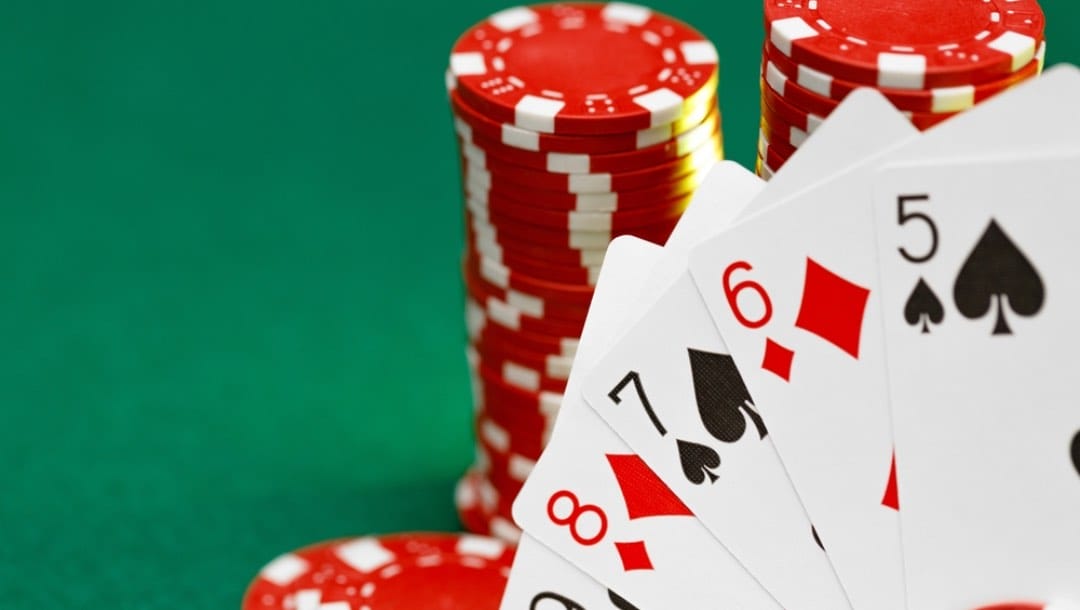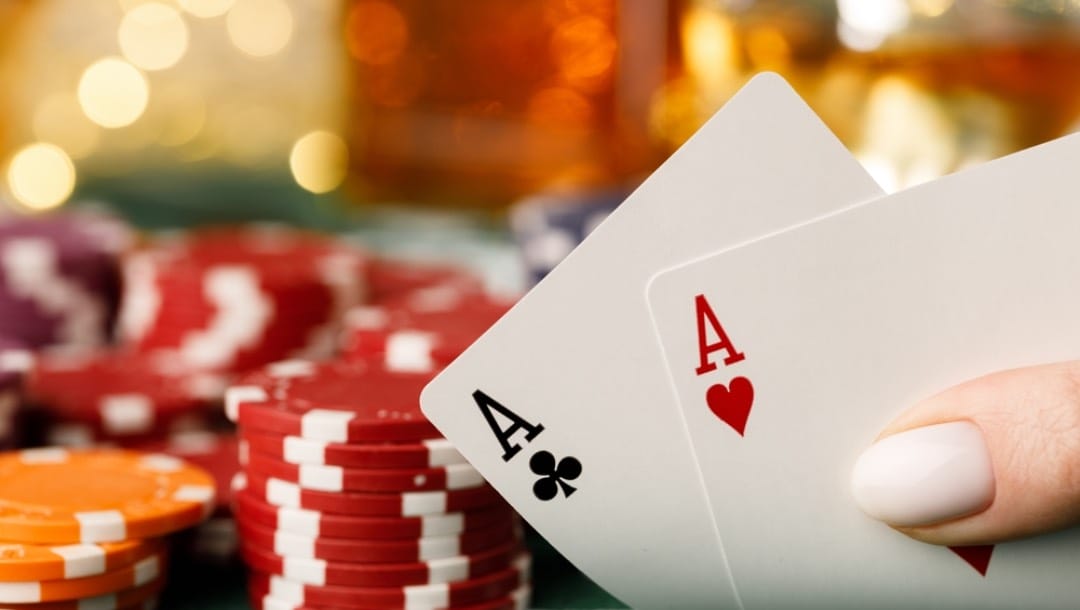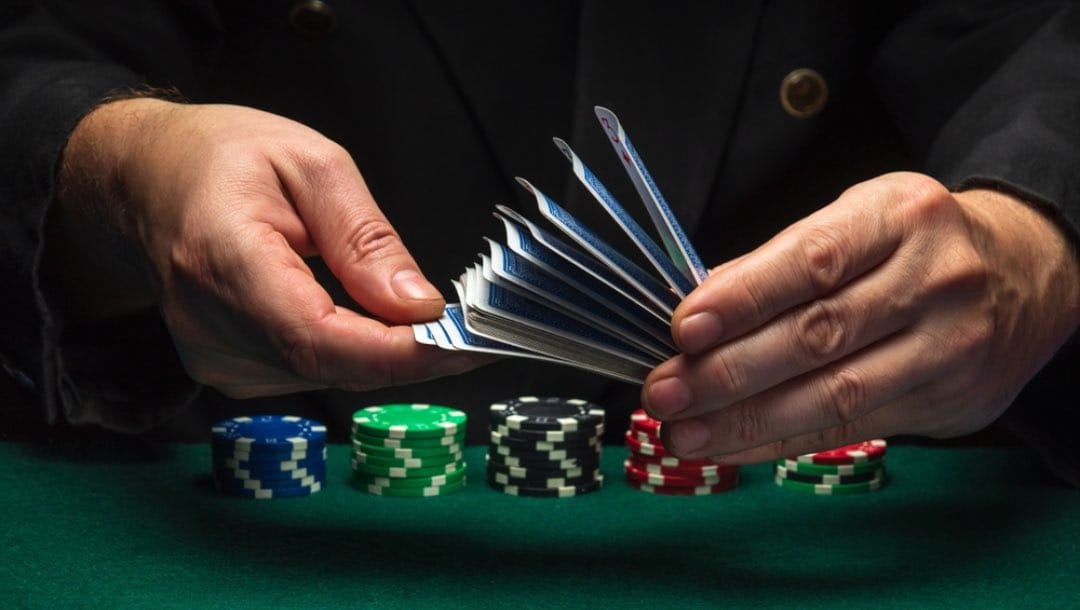Outside of the cards in your hands and the ones placed down by the dealer, there are many sources of information you can use to improve your position in a game of poker. Knowing the time to fold and when to implement strategies is best influenced by the intel collected during the round. Understanding your opponents’ playing personalities can be useful when going head-to-head. For instance, if you notice an active player who tends to fold often, it suggests they only bet when holding strong cards. With this information, you can make an informed decision on whether you believe your cards are good enough to win or decide on the right-sized bet after the flop.
If you make it to the business end of an online poker game, it means there are only a handful of players left, and this is where knowing the playing styles of your opponents becomes very important. Since no one knows what cards the other players are holding, poker online games are about creating any advantage you can and seizing ones that others overlook. We discuss seven questions to ask yourself in every post-flop poker hand.
What is the post-flop in poker?

After the big blinds are placed down, there are three remaining rounds of betting: flop, turn and river. The flop involves the dealer placing down three community cards, while the turn and river only include one additional card.
The post-flop in poker refers to the betting round after the flop cards are visible – but before the turn. For experienced players, this is a round to collect information to decide whether you should continue; although, if it’s a check round, you may as well call and continue. In essence, you’re trying to predict what cards the other players may have.
For example, if the flop produces a king of hearts, king of diamonds and a 3 of clubs, and an opponent bets aggressively, it suggests they’re holding another king – making their hand a three-of-a-kind. Another example for the later stages in a round is if the community cards are a 6 of clubs, 9 of clubs, 2 of hearts, 10 of clubs and a king of clubs, and a player bets high, it indicates that they’re holding another club making their hand a flush (the fifth strongest hand in poker.)
Range advantage in poker?

Identifying the range advantage of each round should play a large role in your decision-making during the post-flop. A range advantage refers to a player’s range of cards being stronger than their opponents. Basically, it’s when the community cards – albeit flop, turn or river – give you an advantage over the pack. When you’re fortunate enough to be in this position, it’s a good moment to play aggressively.
Post-flop strategy for each hand
Playing in online poker tournaments involves plenty of post-flop rounds and for beginners and intermediates looking to progress their skills, it’s a vital round to master. If you’re holding a pair or two pair, ensure you identify the hand ranges possible. For instance, if the flop produces two cards of the same suit, it may be best to save your chips, as the chances of someone chasing a flush is strong. Remember, the start of poker tournaments includes playing against a lot of people, so, if you don’t have strong cards, there’s a good chance someone does. As the players thin out, your chances of winning with these two cards are greater, so if someone makes a small-to-medium-sized bet, don’t be scared to call – they might be bluffing.
From three-of-a-kind (7th strongest hand) to a royal flush (strongest hand,) the way you approach the post-flop is pretty similar. While keeping an eye on other hand combinations available, it’s important to maximize these scenarios, otherwise known as building the pot. If you bet aggressively, you risk your opponent’s folding, resulting in you winning pennies when you could have won dollars. With this in mind, try to let your opponents do the betting and call when needed. Staying under the radar is a great way to keep your hand from your opponents. However, when you get to the river, and you’re holding the nut hand, if there is a raise, you should re-raise.
The post-flop is just the beginning of the round, so always be on the lookout for the nut hand and bet accordingly. Below are some of the questions you should ask yourself during the post-flop:
1. What are the possible hands available?
2. What cards do I believe other players are holding?
3. Do I have the nut hand?
4. Which players are still involved in the round?
5. How have opponents bet during the round?
6. What are the remaining players’ poker personalities?
7. Am I in position or out of position?
Play poker on BetMGM
Wondering how to play Omaha poker and learn more about the most popular poker theorems? BetMGM is regarded as one of the best online poker sites and boasts a range of poker games taking place 24/7 worldwide. Register today and test your skills.
And when you’re ready to discover more, we have endless online casino games to choose from, such as blackjack, online slots, roulette and more.










